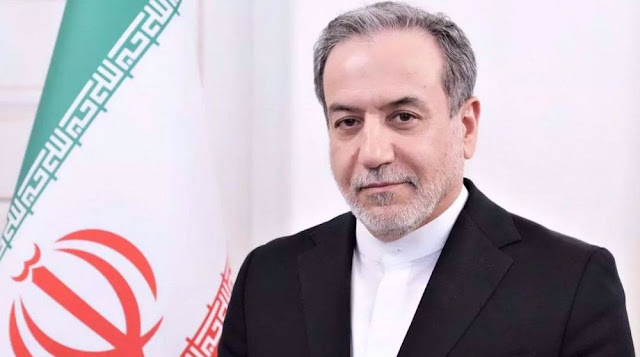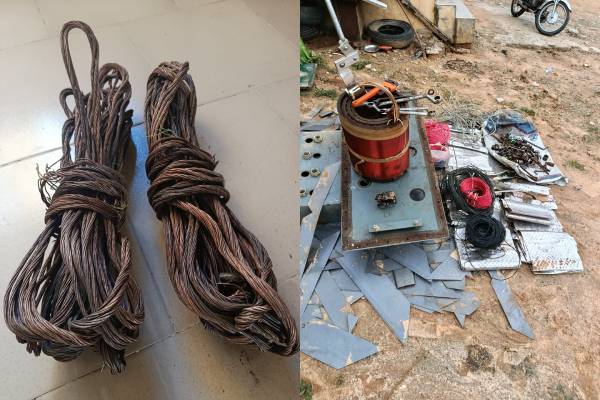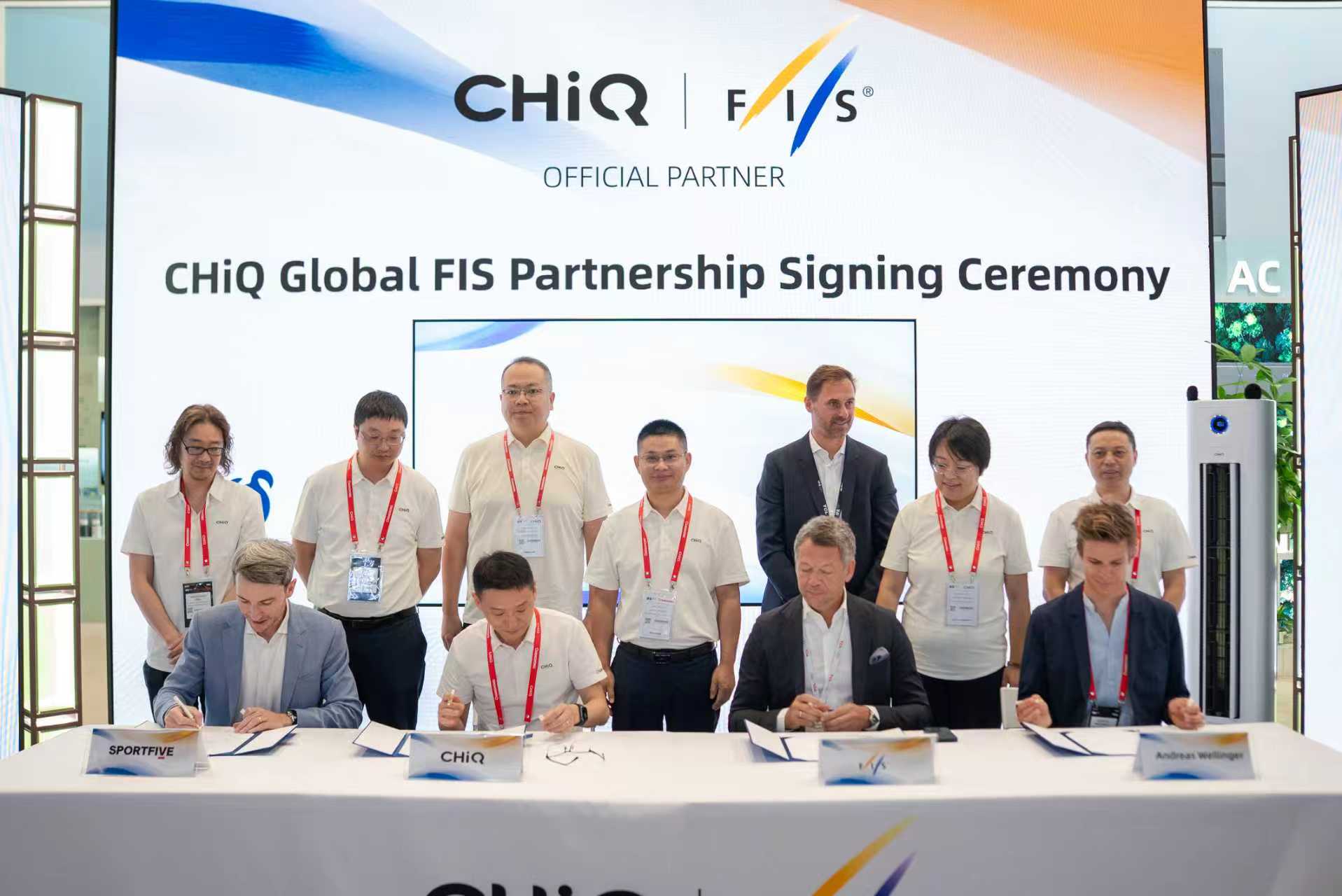In a recent statement, Iran’s Foreign Minister Abbas Araghchi called on the European trio (E3)—comprising France, Germany, and the United Kingdom—to retract their recent actions and reconsider their approach to the Joint Comprehensive Plan of Action (JCPOA), commonly known as the Iran nuclear deal. Araghchi warned that any move by the E3 to activate the so-called “snapback” mechanism, which would reinstate United Nations sanctions on Iran, would be met with a decisive response from Tehran. This development comes amid heightened tensions surrounding the faltering nuclear agreement, which has been a cornerstone of diplomatic efforts to manage Iran’s nuclear program since its signing in 2015.
Background of the JCPOA and Its Current State
The JCPOA, signed in July 2015, was a landmark agreement between Iran and the P5+1 group, which included the United States, Russia, China, France, the United Kingdom, and Germany, along with the European Union. The deal aimed to curb Iran’s nuclear activities in exchange for the lifting of international sanctions, fostering economic reintegration and diplomatic engagement. Under the agreement, Iran agreed to limit its uranium enrichment levels, reduce its stockpile of enriched uranium, and allow extensive inspections by the International Atomic Energy Agency (IAEA) to ensure compliance. In return, the international community lifted economic sanctions, enabling Iran to resume oil exports and access frozen assets abroad.
However, the deal faced a significant setback in 2018 when the United States, under then-President Donald Trump, unilaterally withdrew from the agreement, labeling it as flawed and reimposing harsh sanctions on Iran under a policy of “maximum pressure.” The U.S. withdrawal disrupted the delicate balance of the JCPOA, prompting Iran to gradually scale back its commitments starting in 2019. Tehran began increasing its uranium enrichment levels and stockpile beyond the limits set by the agreement, arguing that it was responding to the U.S. violation of the deal and the failure of European signatories to deliver promised economic benefits.
The E3 countries, while critical of the U.S. withdrawal, have struggled to salvage the agreement. Efforts to create mechanisms like INSTEX (Instrument in Support of Trade Exchanges), designed to facilitate trade with Iran without violating U.S. sanctions, have largely failed to meet Iran’s expectations. As a result, Iran has accused the European powers of failing to uphold their commitments, further eroding trust in the diplomatic process.
Araghchi’s Statement and the Snapback Threat
In his recent remarks, Foreign Minister Araghchi emphasized that the E3 should pull back from their current trajectory, which he described as counterproductive to the spirit of the JCPOA. The “snapback” mechanism, embedded in the agreement, allows any signatory to reinstate UN sanctions if they believe Iran is not complying with the deal’s terms. This mechanism was designed as a safeguard to ensure Iran’s adherence but has become a contentious issue as relations between Iran and the West have deteriorated.
Araghchi warned that activating the snapback mechanism would effectively dismantle the JCPOA, plunging the region into further uncertainty. He argued that such a move would not only undermine years of diplomatic efforts but also provoke a strong reaction from Iran, potentially escalating tensions in an already volatile region. The Iranian foreign minister reiterated Tehran’s commitment to diplomacy but stressed that Iran would not tolerate actions that threaten its sovereignty or economic interests.
The E3’s recent actions, including their criticism of Iran’s nuclear advancements, have raised concerns in Tehran that the European powers may be aligning more closely with the U.S. position. Reports indicate that the E3 has been engaging in discussions about invoking the snapback mechanism in response to Iran’s increased enrichment activities and restricted access for IAEA inspectors. Araghchi’s statement serves as a direct appeal to the E3 to reconsider this approach and prioritize dialogue over confrontation.
Iran’s Position on the Nuclear Deal
Iran has consistently maintained that its nuclear program is peaceful and aimed at civilian purposes, such as energy production and medical research. The country has argued that its actions to scale back JCPOA commitments are reversible and contingent on the other parties fulfilling their obligations. Iranian officials, including Araghchi, have called for the lifting of U.S. sanctions and the provision of tangible economic benefits as prerequisites for returning to full compliance with the deal.
Since the U.S. withdrawal, Iran has faced severe economic challenges, including skyrocketing inflation, a devalued currency, and restricted access to global markets. These pressures have fueled domestic discontent and strengthened hardline voices within Iran’s political landscape, who argue that the JCPOA has failed to deliver on its promises. The election of President Ebrahim Raisi in 2021, followed by the appointment of Araghchi as foreign minister, signaled a shift toward a more assertive foreign policy, with Iran demanding concrete assurances from Western powers before re-engaging in negotiations.
The E3’s Perspective and Challenges
The E3 countries face a complex balancing act in their approach to the JCPOA. On one hand, they remain committed to preserving the agreement as a critical tool for preventing Iran from developing nuclear weapons. On the other hand, they are under pressure from the United States and domestic constituencies to address Iran’s non-compliance and regional activities, including its support for proxy groups in the Middle East and its ballistic missile program.
The E3 has expressed concern over Iran’s recent nuclear advancements, including the operation of advanced centrifuges and the enrichment of uranium to levels closer to weapons-grade material. IAEA reports have highlighted restricted access to certain nuclear facilities, raising questions about Iran’s transparency. These developments have prompted the E3 to consider tougher measures, including the snapback mechanism, as a means of pressuring Iran to return to compliance.
However, the E3 is also aware that invoking snapback could lead to the collapse of the JCPOA, potentially pushing Iran to accelerate its nuclear program or withdraw from the Non-Proliferation Treaty (NPT) altogether. Such a scenario would have far-reaching implications for regional security and global non-proliferation efforts. The E3 has therefore sought to maintain a delicate balance, urging Iran to resume negotiations while warning of consequences for continued non-compliance.
Broader Implications for Regional and Global Stability
The standoff over the JCPOA has significant implications for the Middle East and beyond. The potential collapse of the agreement could exacerbate tensions between Iran and its regional rivals, particularly Israel and Saudi Arabia, both of which view Iran’s nuclear ambitions with alarm. Israel, in particular, has repeatedly threatened military action against Iran’s nuclear facilities, raising the specter of a broader conflict.
The reimposition of UN sanctions through the snapback mechanism would also strain Iran’s relations with Russia and China, both of which have maintained closer ties with Tehran since the U.S. withdrawal from the JCPOA. Russia and China have criticized Western efforts to pressure Iran, arguing that the U.S. withdrawal set the stage for the current crisis. Any move to reinstate sanctions could further complicate relations between Western powers and these key global players.
Moreover, the JCPOA’s fate is closely tied to broader geopolitical dynamics, including U.S.-Iran relations, the ongoing conflict in Yemen, and negotiations over Iran’s role in regional stability. The Biden administration, which initially expressed interest in reviving the JCPOA, has faced challenges in navigating domestic opposition and Iran’s hardened stance. Indirect talks between the U.S. and Iran, mediated by the EU, have stalled, with both sides accusing each other of intransigence.
The Role of Diplomacy in Resolving the Crisis
Araghchi’s call for the E3 to reconsider their approach underscores the importance of diplomacy in resolving the current impasse. Despite the challenges, there remains a window of opportunity for negotiations to restore the JCPOA. Iran has indicated its willingness to engage in talks, provided that its demands for sanctions relief and economic guarantees are met. The E3, for its part, has emphasized the need for Iran to address concerns about its nuclear activities and comply with IAEA inspections.
The EU, as a key mediator, has a critical role to play in facilitating dialogue between the parties. EU foreign policy chief Josep Borrell has repeatedly called for all sides to return to the negotiating table, warning that the collapse of the JCPOA would have dire consequences for global security. However, the EU’s ability to bridge the gap between Iran and the West is limited by the broader geopolitical context, including U.S. domestic politics and Iran’s internal dynamics.
Domestic and International Reactions
Araghchi’s statement has elicited varied responses from stakeholders. In Iran, hardline factions have praised the foreign minister’s firm stance, viewing it as a necessary defense of national sovereignty. However, reformist voices have cautioned that escalation could further isolate Iran and exacerbate its economic woes. The Iranian public, grappling with the effects of sanctions and inflation, remains divided on the best path forward, with some supporting a return to negotiations and others favoring a more confrontational approach.
Internationally, the E3 has yet to formally respond to Araghchi’s remarks, but diplomatic sources indicate that the trio is weighing its options carefully. The U.S. has reiterated its commitment to preventing Iran from acquiring nuclear weapons, while expressing openness to diplomacy. Russia and China, meanwhile, have called for restraint, urging all parties to avoid actions that could jeopardize the JCPOA.
The Path Forward
The future of the JCPOA remains uncertain, with both sides facing difficult choices. For Iran, the decision to continue scaling back its commitments or return to compliance hinges on the actions of the E3 and the U.S. For the European powers, the challenge lies in balancing their commitment to non-proliferation with the need to maintain diplomatic channels with Iran.
Araghchi’s warning serves as a reminder of the high stakes involved in the nuclear standoff. The activation of the snapback mechanism could mark the end of the JCPOA, setting the stage for increased tensions and potential conflict. Conversely, a renewed commitment to diplomacy could pave the way for a mutually acceptable resolution, preserving the agreement and fostering stability in the region.
As the international community watches closely, the coming weeks will be critical in determining whether the JCPOA can be salvaged or whether the region will slide further toward confrontation. The E3’s response to Araghchi’s call will play a pivotal role in shaping the outcome, underscoring the enduring importance of dialogue in addressing one of the most pressing challenges in global security.
Expanded Analysis and Context
To further elucidate the significance of Araghchi’s statement, it is worth exploring the broader historical and geopolitical context of Iran’s nuclear program and the JCPOA. Iran’s pursuit of nuclear technology dates back to the 1950s, when it launched its nuclear program with U.S. assistance under the Atoms for Peace initiative. However, the 1979 Islamic Revolution and subsequent tensions with the West led to suspicions about Iran’s intentions, culminating in international sanctions and diplomatic isolation.
The JCPOA represented a rare moment of diplomatic convergence, bringing together major powers with divergent interests to address a shared concern. Its unraveling has highlighted the fragility of multilateral agreements in the face of unilateral actions and shifting political landscapes. The U.S. withdrawal in 2018 not only undermined the deal but also exposed the limitations of European autonomy in global affairs, as the E3 struggled to counter U.S. sanctions.
Araghchi’s warning also reflects Iran’s growing frustration with what it perceives as Western double standards. Tehran points to the failure of European powers to deliver on economic promises as evidence of bad faith, while the E3 argues that Iran’s non-compliance has eroded trust. This mutual distrust has created a vicious cycle, with each side waiting for the other to make concessions.
The snapback mechanism itself is a unique feature of the JCPOA, designed to ensure compliance but fraught with risks. Its invocation would require consensus among the remaining signatories, a process complicated by Russia and China’s opposition to further sanctions. Moreover, the mechanism’s use could trigger a broader unraveling of the UN Security Council’s authority, as Iran might view it as a violation of international law.
Regional Dynamics and Security Concerns
The nuclear standoff is inextricably linked to broader regional dynamics. Iran’s support for groups like Hezbollah in Lebanon and the Houthis in Yemen has fueled tensions with Israel and Saudi Arabia, both of which view Iran as a primary threat. The potential collapse of the JCPOA could embolden hardliners in Iran to pursue a more aggressive regional policy, further destabilizing the Middle East.
Israel, in particular, has taken a hardline stance, conducting covert operations against Iran’s nuclear facilities and advocating for a military option. The U.S., while seeking to avoid direct conflict, has maintained a robust military presence in the region, raising the risk of miscalculation. Any escalation over the JCPOA could have ripple effects, impacting conflicts in Syria, Iraq, and Yemen.
Economic and Humanitarian Dimensions
The economic toll of sanctions on Iran cannot be overstated. The reimposition of U.S. sanctions in 2018 led to a sharp decline in Iran’s oil exports, a key source of revenue, and triggered a currency crisis. Ordinary Iranians have borne the brunt of these measures, facing soaring prices for basic goods and limited access to medicines and medical equipment. The humanitarian impact has drawn criticism from international organizations, which argue that sanctions disproportionately harm civilians.
Araghchi’s call for the E3 to reconsider their approach is thus not only a diplomatic maneuver but also a reflection of domestic pressures. The Iranian government faces growing demands to address economic hardship, and a failure to secure sanctions relief could further erode public support. At the same time, the E3’s reluctance to ease sanctions stems from concerns about Iran’s regional activities and nuclear advancements, creating a complex web of competing priorities.
The Role of Other Global Powers
Russia and China’s roles in the JCPOA crisis are pivotal. Both countries have deepened their economic and strategic ties with Iran, providing a lifeline amid Western sanctions. Russia, in particular, has collaborated with Iran on energy and defense projects, while China has emerged as a major buyer of Iranian oil. Their opposition to the snapback mechanism reflects broader geopolitical rivalries, as they seek to counter U.S. influence in global affairs.
The involvement of these powers complicates the E3’s calculus. While the European trio shares the U.S. goal of preventing a nuclear-armed Iran, it must also navigate its relationships with Russia and China, both of which wield veto power in the UN Security Council. A failure to coordinate with these powers could undermine any attempt to revive the JCPOA or enforce sanctions.
Prospects for Resolution
Despite the challenges, there are pathways to de-escalation. A phased approach, in which Iran agrees to freeze its nuclear advancements in exchange for limited sanctions relief, could rebuild trust and create space for broader negotiations. The EU’s mediation efforts will be crucial in this regard, as will the Biden administration’s willingness to offer meaningful concessions.
Public opinion, both in Iran and the West, will also shape the outcome. In Iran, the government must balance domestic demands for economic relief with its commitment to sovereignty. In Europe and the U.S., leaders face pressure to demonstrate that diplomacy can yield results without compromising on security.
Araghchi’s statement is a call to action, urging the E3 to prioritize dialogue over confrontation. Whether this appeal will resonate remains to be seen, but the stakes could not be higher. The JCPOA’s survival hinges on the ability of all parties to find common ground, lest the region descend into a cycle of escalation and conflict.






